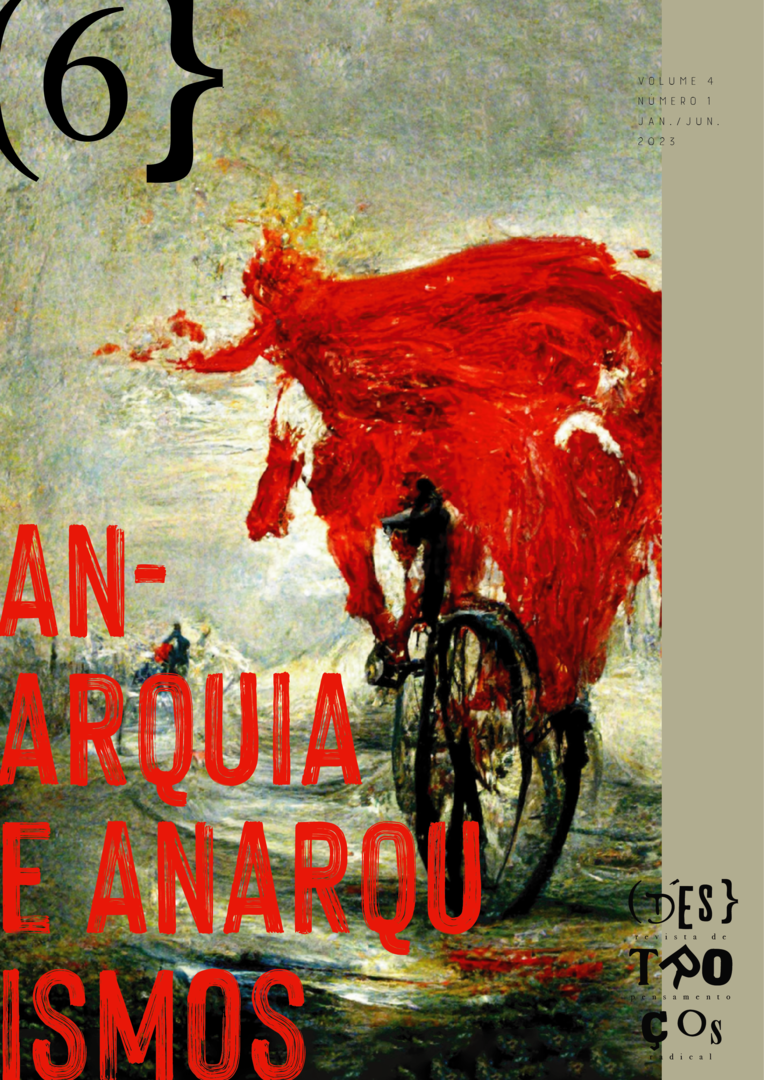Published 2023-09-12
Keywords
- hybrid culture,
- decoloniality,
- African philosophies,
- justice as fairness,
- pluriversal justices
How to Cite
Copyright (c) 2023 Adalberto Arcelo, Joaquim Leonardo Lopes Louzada de Freitas

This work is licensed under a Creative Commons Attribution 4.0 International License.
Abstract
This work proposes an analysis of the structure of modern-colonial knowledge, which was materialized in John Rawls's theory of justice, considering the theory updates the paradigm of consciousness as a condition for the possibility of the order of discourse, rescaling the abyssal line between being and not being, transforming it into a mass grave for the subalternation and elimination of non-white existences. In this scenario, Rawls's theory of justice reverberates as a racialized theory, contributing to the exclusion of bodies oriented by other worldviews — non-Western ones — from access to an alleged rational system of justice. It is a farcical impartiality, operationalized through the abstraction of sociopolitical and racial relations. It is noticeable that the application of this symbolic system in the Brazilian context, strongly marked by the cultural hybridity that constitutes our genealogy, results in the updating of subaltern traditions — hence the urgency to consider possibilities of deliberation by pluriversal justices. Subsidies provided by critical and decolonial social philosophy are used to boost the visibility of ancestral black traditions and, specifically, the knowledge and powers of the Orixás Exu and Xangô. Thus, transcultural conceptions of justice are promoted, capable of overcoming the perverse abyssal line underlying dehumanizing narratives of justice.
Downloads
References
- AGAMBEN, Giorgio. Profanações. São Paulo: Boitempo, 2007.
- BÂ. A. Hampaté. Tradição viva. In: História da África, I: metodologia e pré-história da África. Ed. Joseph Ki‑Zerbo. 2.ed. rev. Brasília: UNESCO, 2010. cap. 8, pp. 221-266.
- BHABHA, Homi K. Local da Cultura. Belo Horizonte: UFMG, 1998.
- BOAS, Francisco V. Bases para uma teoria antropocêntrica de Direito Penal. 1. ed. São Paulo: Trevo, 2022.
- CANCLINI, Nestor G. Culturas Híbridas: estratégias para entrar e sair da modernidade. Trad. Heloísa Pezza Cintrão, Ana Regina Lessa. 4. ed., 8. reimp. São Paulo: Universidade de São Paulo, 2019.
- DERRIDA, Jacques. Força de lei: o fundamento místico da autoridade. Trad. Leyla Perrone-Moisés. São Paulo: WFM Martins Fontes, 2007.
- DUSSEL, Enrique. Filosofia na América Latina: filosofia da libertação. São Paulo: Loyola, 1977.
- FOUCAULT, Michel. Ditos e escritos IV: estratégia poder-saber. Trad. Vera Lucia Avellar Ribeiro. 2. ed. Rio de Janeiro: Forense Universitária, 2006.
- GADAMER, Hans-Georg. Verdade e método: Traços fundamentais de uma hermenêutica filosófica. Trad. Flávio Paulo Meurer. 3 ed. Vozes, 1999.
- LOBO, Jade A. O debate agora é cosmopolítico: perspectiva afropindorâmica, antropocego e ontologia combativa. Novos debates, v. 7, n. 2, pp. 1-17, 2021. Disponível em: http://novosdebates.abant.org.br/v7-n2/. Acesso em: 25 maio 2023. DOI: https://doi.org/10.48006/2358-0097-7215
- LOPES, Nei; Simas, Luiz Antonio. Filosofias africanas. 5 ed. Rio de Janeiro: Civilização Brasileira, 2021.
- MALDONADO-TORRES, Nelson. A topologia do Ser e a geopolítica do conhecimento: modernidade, império e colonialidade. Revista crítica de ciências sociais, n. 80, pp. 71-114, 2008. Disponível em: https://dialnet.unirioja.es/ejemplar/203921. Acesso em: 15 maio 2023. DOI: https://doi.org/10.4000/rccs.695
- MALDONADO-TORRES, Nelson. Transdisciplinaridade e decolonialidade. Trad. Joaze Bernardino-Costa. Revista Sociedade e Estado, v. 31, n. 1, p. 75-97, 2016. Disponível em: https://periodicos.unb.br/index.php/sociedade/article/view/6080. Acesso em: 23 maio 2023. DOI: https://doi.org/10.1590/S0102-69922016000100005
- MUNANGA, Kabengele. Rediscutindo a mestiçagem no Brasil: identidade nacional versus identidade negra. 5. ed. Belo Horizonte: Autêntica, 2020.
- RAWLS, John. Uma teoria da justiça. Trad. Almiro Pisetta e Lenita M. R. Esteves. São Paulo: Martins Fontes, 1997.
- RUFINO, Luiz. Pedagogia das encruzilhadas. Rio de Janeiro: Mórula, 2019. DOI: https://doi.org/10.24065/2237-9460.2019v9n4ID1012
- TAVARES, Ildásio. Xangô. 2. ed. Rio de Janeiro: Pallas, 2002.
- TEIXEIRA, Thiago. Inflexões éticas. Belo Horizonte: Senso, 2019.

